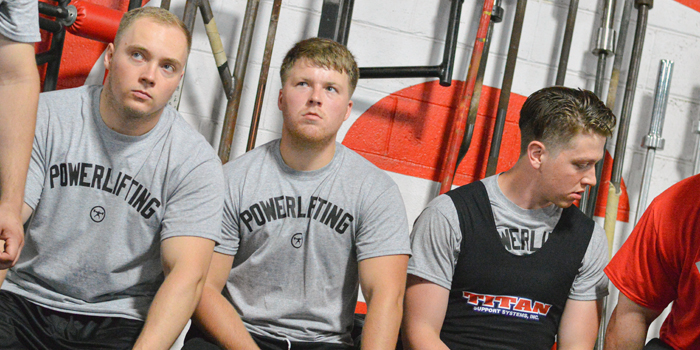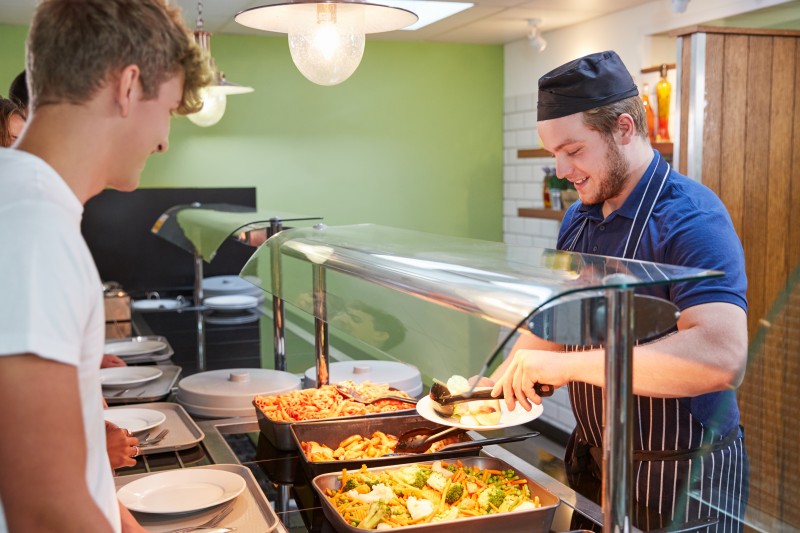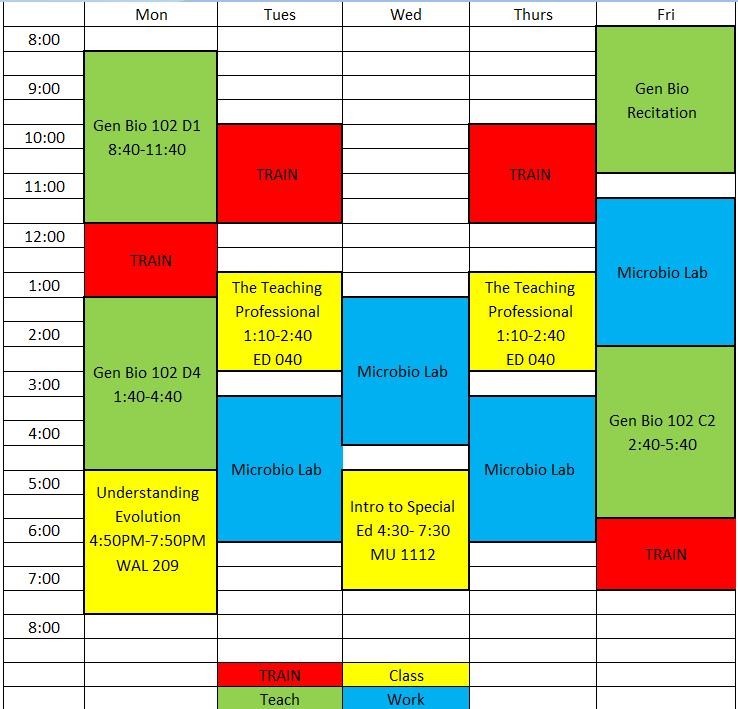
Being a college student can present one of the greatest opportunities for making progress in the gym. Whether your goals are gains in strength or body composition, the opportunities available to college students should be abundant. Several different aspects should be paid attention to, so I will try to break them down into a few major categories. I will also refer to my own college lifting days to illustrate specific examples.
Facilities
When living on a college campus, you should have at least one gym within walking distance. If you attend a larger university, you may have multiple gyms spread out over campus or even over multiple campuses. If you have the luxury of multiple gyms, you should easily be able to hit the gym before or after class/work. Having multiple gyms available also presents an opportunity to choose which gym will be most effective for that day’s specific workout. Does one gym have a nice platform? Go there when you deadlift. Does one gym have a large variety of quality equipment? Go there on days when your focus is hypertrophy/bodybuilding. Is one of the gyms the most convenient location for you and your training partner to meet up? Plan to train there. I’ll touch on training partners later. If you only have one gym on campus, chances are, your school isn’t that large, and you should be within walking distance, which offers convenience, especially if you are not permitted a vehicle on campus. Finally, if your school does not have a weight room that meets your needs, look elsewhere! For the first two years of attending my university, the gym had no free weights and was absolutely pathetic. So most of the meatheads like myself chose to train at a local gym outside of campus. The gym was located in a rougher area, but we took a risk to train at a hardcore gym that was outfitted for real training.
LISTEN: Table Talk Podcast Clip — Justin Harris Explains Carb Cycling
I’ll include training partners in this section, since it was mentioned in the previous paragraph. Training with a partner can be extremely valuable, but you need to go about finding the right person. Finding someone bigger, stronger, and more knowledgeable is great. It can work for a while, but if they are not as dedicated and disciplined as you, it will probably not work out. I have had five training partners in my entire life, four of which were during college. The first two were guys who began our partnership being bigger and stronger than me, but that didn’t last long, and we eventually just stopped training together as our intensity/consistency didn’t match up. The next two were great friends, who were strong and athletic, who I helped, and we trained for the sake of just having someone to workout with. The most recent one was a co-worker who was nowhere near my strength or lifting experience but had an absolutely tenacious work ethic and a passionate intensity bordering on obsessiveness, just like me. A cross-country relocation was the only thing stopping our in-person partnership. There should be plenty of beefcakes walking around your college, so find someone who will be dedicated to the partnership, won't be afraid to hold you accountable, and can match your intensity.

Cathy Yeulet © 123rf.com
Nutrition
Whether you live on campus or commute, you'll probably have a meal plan and access to a dining hall. You need to find the best ways to meet your nutritional requirements with the resources available. I would suggest finding a few go-to meals for each time of the day; breakfast, lunch, and dinner. Sometimes you will go to the dining hall and find they will have nothing new, convenient, exciting, enjoyable, and certainly not muscle-building approved. Some days, especially weekends, it may seem like there was literally nothing newly cooked, just reheated, which is very likely the case as the full-time Monday through Friday employees aren’t working. This is where you need to have your reliable go-to meal. For example:
Breakfast
If the dining hall has an omelet station with an egg white option, you can have a few full eggs and veggies and then top of the rest of your creation with egg whites to meet your morning’s protein requirements. Pair that with a bowl of oatmeal, cereal, toast/bagel, and fruit.
If you aren't lucky enough to have access to an omelet station, look for hard-boiled eggs. Take as many as you need and then eat a few full ones. Like I mentioned before, top off your protein requirements with the whites. It takes a little while to peel them, but it's not a big deal. Add a little salt and pepper, and you’ve got a pretty enjoyable entree. I met my training partner, who later became my roommate, scooping up all of the cafeteria's hard-boiled eggs.
Lunch
Lunch should be the easiest meal to have a backup for if there is nothing new and exciting on the day's menu. Find some bread, find some cold cuts, and make a few sandwiches. Have a big salad with green veggies in it or throw the veggies in your sandwiches and add more fruit.
Dinner
Most dining halls have buffet/station style food presentation options. You should be able to find a pasta, Wok, or potato station, a grilled/rotisserie chicken station, and a salad bar. If you have these options, there is no reason you can't have a hearty, nutrient-dense meal at dinner every night. A plate of pasta/rice/potato, and a plate full of chicken and veggies. What kind of rice, pasta, and potatoes should you choose? The ones that you like! Don't worry so much about brown vs. white rice, sweet vs. baked potato, whole wheat vs. durum wheat pasta. Give yourself a little variety and choose the foods that will allow you to stay consistent.
Pre-Bed Meal
While your friends are making an ice cream cone, milkshake, or grabbing a coke to mix their rum with later on, you should be thinking about what foods you can put into a cup and walk out of the cafeteria with and avoid being hassled by dining hall staff. Obviously, you aren’t going to be able to consistently walk out with a plate full of chicken and rice every night, but there shouldn’t be an issue with filling up a disposable cup with cottage cheese, Greek yogurt, or even better, a few scoops of protein powder from the smoothie station!
In-Between Meals
If you're trying to build muscle, three meals and a pre-bed snack might not cut it. Having some quick and easy, yet nutritious meal options is important for in-between trips to the dining hall. Make sure you touch base with your roommate before school to decide who will bring a microwave and minifridge, if your school doesn't provide them. Some examples of convenient, easy-to-store foods are broken down by major macronutrient below:
- Carbohydrates: Bread, microwaveable rice packets, oatmeal, fruits (bananas, apples, kiwi)
- Protein: Cold cuts, Greek yogurt, canned tuna/chicken, protein powder, beef jerky
- Fats: Nuts/nut butters, olive oil (yes, you can drink it straight by the tablespoon), fish oil/EFA capsules
Supplements
My recommendation regarding supplements is to spend your (parents') money on food and other necessary items and keep the supplement budget fairly low. Spending thirty to fifty dollars per month on pre-workout and other sexy supplements is entirely unnecessary, especially at the ages of 18-22. If you need a boost of alertness, get a cup of coffee from the cafeteria during the meal before you train. If you're going to buy supplements anyway, I'd go for some protein powder and unflavored creatine monohydrate. If you aren't eating much fruit/veggies (which you should be!), throw a multivitamin in there, and if you aren't eating many fats from fish, avocados, nuts, then I'd add in a fish oil/EFA supplement. After these things, then maybe consider a pre-workout, if you feel you need it, which you probably don't.
Another tip that can help you maximize your nutrition is to become friendly with the dining hall staff. This is one thing that I can’t even put a dollar amount on how much money I saved by doing this. Chatting with the guy who distributed the rotisserie chicken allowed me to get a full chicken, every single time I asked for one when everyone else was getting either a breast or thigh. Hanging out with the guy who worked at the sandwich shop provided me with a free sandwich and a shopping bag full of Gatorades and bottled water for me and whoever was with me. My wife and I became close with an older employee who worked at the register swiping meal cards upon entry to the dining hall. I won’t elaborate too much on this one, but our cards were turned upside down before she swiped them. Simple things like being friendly to nice, hard-working people, can pay off in favor of your nutritional/financial needs.
Alcohol
The last topic I'll touch upon regarding nutrition is a big one, especially in the college environment: alcohol. At this point in your training career, you should understand that alcohol will not provide you with muscle or strength gains. If you are under 21, don't enjoy drinking, and don't have friends who do. Total alcohol avoidance is recommended. That being said, if you're at least 21 years old, enjoy a drink from time to time and have friends who do as well. Attend a party once in a while and enjoy being a college student with your college friends. Enjoy a couple of beers, but milk them. Have a bottle of water between each drink. Hold an empty container for a little while if you feel like you started too fast or have reached your limit for the night. If people ask why you're not drinking much or at all, being honest is a totally acceptable option. Tell them your training early in the morning, or have to wake up and eat, or are serious about bodybuilding/powerlifting/whatever. At the very least, it'll initiate a conversation about what you're training for. Maybe you'll end up taking your shirt off and embarrassing all the other slobs at the party! Never allow alcohol to be the reason you can't train or eat right. Never be so hungover that it'll affect your workout or that you'll end up missing three meals before you wake up or don't feel nauseated. Finally, never cross the line and always be in control.
Time Management
Let's face it, as much as you'd like to think you have a lot of responsibilities as a college student, even if you are studying hard and working a real job, you most likely don't have a house to maintain or have other humans for whom you are responsible for. You only really need to worry about yourself. You may have a work-study or off-campus job, but you probably aren’t working full-time. This offers you a lot of free time. When you're not doing homework and studying, relax, and reduce stress. This is when you train. My advice is to lay out your week, including all of your daily obligations; class, work, training, commuting, and even eating. Below is an example of one of my schedules from when I was in graduate school. I ate during class most of the time, so I didn’t include that in the schedule, but you could.

Your college years can be a landmark chapter of your lifting career as long as you approach it intelligently. For many, it will serve as your first experience training alone—not being a part of a sports team, with no coaches telling you what to do. It can serve as the introduction to many new avenues with which strength training can be approached. You may find your passion in the weight room and carry it with you for decades to come.











1 Comment